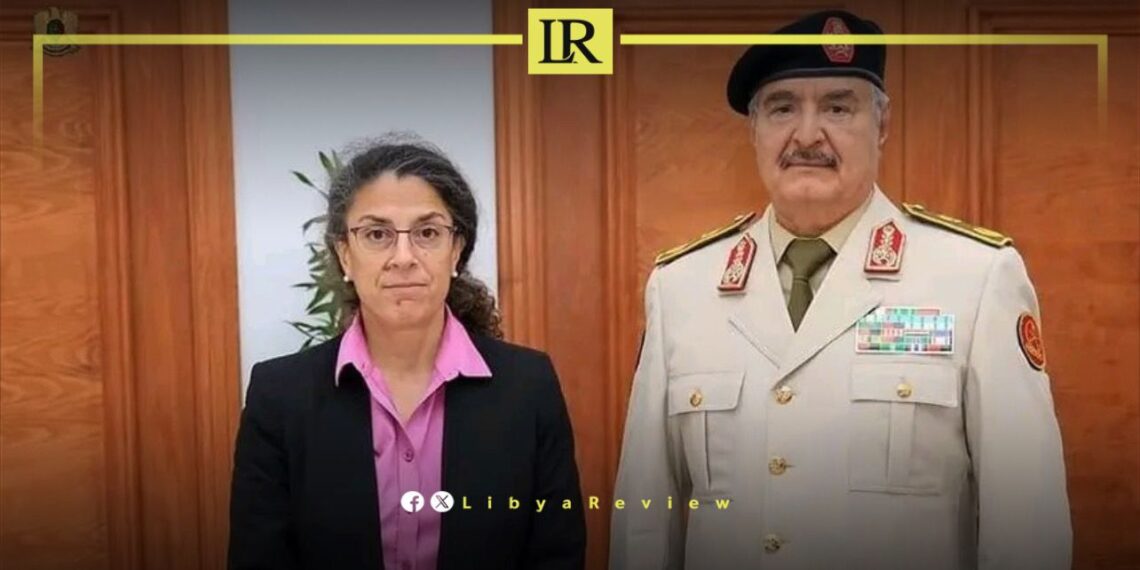On Sunday, the Commander-in-Chief of the Libyan National Army (LNA), Field Marshal Khalifa Haftar, met with Stephanie Khoury, Acting Head of the United Nations Support Mission in Libya (UNSMIL), and her accompanying delegation at the LNA’s headquarters.
The discussions focused on advancing the political process to prepare Libya for presidential and parliamentary elections. The meeting also explored ways to reach consensus solutions that would lead to the elections eagerly anticipated by the Libyan people.
Khoury also highlighted the significant role of the LNA in maintaining security and stability in Libya. They underscored the importance of joint efforts between the LNA and the United States in combating terrorism and extremism.
Libya has been embroiled in conflict and political turmoil since the fall of Muammar Gaddafi in 2011. The power vacuum led to the emergence of rival administrations and militias, each vying for control. The country is currently divided between the eastern-based Libyan National Army (LNA), led by Field Marshal Khalifa Haftar, and the Tripoli-based Government of National Unity (GNU), led by Prime Minister Abdel-Hamid Dbaiba.
Despite numerous challenges, including disagreements over electoral laws, security concerns, and political divisions, there is a concerted push to hold national elections. These elections are seen as a critical step towards resolving the long-standing conflict and achieving lasting peace in Libya.
Libya has been in turmoil since the 2011 uprising that toppled Muammar Gaddafi. The country has since been divided between rival factions, with the Government of National Unity (GNU) based in Tripoli and the Parliament’s designated government in the east. Efforts to unify the country and establish a stable political framework have been ongoing, with the United Nations playing a pivotal role in mediating between the conflicting sides.
The Libyan Political Agreement, signed in 2015, aimed to bridge the divide and create a framework for governance and elections. However, progress has been slow, and Libya remains split along political and military lines.
The upcoming elections are viewed as a critical step towards resolving Libya’s ongoing crisis. However, the political landscape remains fraught with challenges, including the need for consensus on electoral laws, security arrangements, and the participation of various political and military factions.
The recent meeting between Haftar and the US delegation highlights the ongoing diplomatic efforts to prepare Libya for elections and ensure a stable and secure environment.


